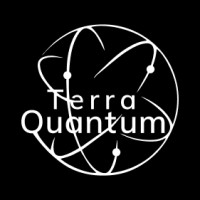New Research Finds Quantum Software Makes Complex Chemistry Research Process Up to 20 Times More Efficient

Terra Quantum and RWTH Aachen University researcher developed a tensor network technique that increased speed, accuracy and flexibility of molecular modeling
The paper, “Tensor Train Optimization for Conformational Sampling of Organic Molecules1,” was just published on ChemRxiv and opens the path to applications in the materials science and pharmaceuticals industries.
Understanding structures of molecules is often a bottleneck in the drug discovery process. It is generally costly and time consuming to attain high quality molecular structure data. Terra Quantum’s approach generates molecular structure datasets with faster, more computationally efficient and accurate methods.
“Being able to explore a wider chemical space could allow for significant acceleration in the drug design process by reducing the time needed to find a drug candidate most likely to be successful,” said Markus Pflitsch, CEO and founder of Terra Quantum.
The computational process being re-engineered is called “conformer search,” which is used to determine the structure of a molecule. The goal of this process is to find the most stable 3D structures of molecules. In contrast with conventional AI methods, Terra Quantum’s approach does not need training data and performs well in situations where datasets are limited.
The new technique improved upon the traditional approach in the analysis and prediction of a wide dataset of molecules, including penicillin and ritonavir (a molecule used in treatment for HIV).
The computational challenge is that the number of possible conformations increases exponentially with respect to the number of flexible bonds of a molecule. The time and computing power required to search for the conformational space can quickly become prohibitive.
The entire drug development process can cost between $1 - $2 billion per approved drug, with a large percentage of that going on clinical trials. Finding stable molecules is central to drug development and the creation of new materials and chemicals.
Unlike traditional approaches to determining molecular structures, Terra Quantum’s tensor network-based approach can find and explore molecules without the need to produce them synthetically.
"Tensor train optimization for conformer search offers a physics-driven approach, unlike many machine learning-based methods that rely on large datasets,” said Dr. Roman Ellerbrock, Head of Applied Research in Chemistry, Terra Quantum. “Our method finds highly accurate conformers with significantly fewer function evaluations than competing optimization techniques, delivering substantial speed-ups and a data-independent solution."
Several approaches have been used to address this problem for small-and medium-sized molecules, one of the best performing ones being CREST, an open-source program that automates molecular chemical research. The Terra Quantum approach has shown significant speed-up when compared to CREST.
"With the tensor train-based optimization, conformer sampling of molecules can be significantly accelerated, compared to the state-of-the-art approaches in the field. This opens up opportunities to treat large molecules that would otherwise lead to an explosion in the computational costs. Hence, we now added an important tool for performing predictive quantum chemical investigations on large molecules," said Prof. Dr. Christoph Bannwarth, professor of Quantum Chemistry at RWTH Aachen University.
Tensor networks are mathematical structures used in quantum physics to efficiently represent and manipulate complex multi-dimensional data. These structures can represent complex configurations and operate directly on the mathematical properties of the molecules without the need to be trained on pre-existing data.
The next phase of this research will focus on larger molecules, cyclic peptides, calculating protein binding affinities and working with industry partners to address specific needs.
About Terra Quantum
Terra Quantum Group is a leading quantum technology company co-headquartered in Germany and Switzerland. It provides “Quantum as a Service (QaaS)” in three core areas, the first one being “Quantum Algorithms as a Service.” Here, customers are provided access to an extensive library of algorithms, such as hybrid quantum optimization and hybrid quantum neural networks, which can be used for solving complex logistics problems or pattern recognition, among other things. Terra Quantum also develops new quantum algorithms for its customers or adapts existing algorithms to their specific needs. Secondly, through “Quantum Computing as a Service,” Terra Quantum offers its customers access to its proprietary high-performance simulated quantum processing units (QPU), the quantum ecosystem’s physical QPUs, while also developing native QPUs. The third division is “Quantum Security as a Service,” through which Terra Quantum offers its unique solutions for secure quantum and post quantum communications worldwide.
Visit us on LinkedIn3 and our webpage.
Veronica Combs
HKA Marketing Communications
+1 714-422-0927
email us here
1 https://chemrxiv.org/engage/chemrxiv/article-details/66f25794cec5d6c14207590b
2 https://terraquantum.swiss/
3 https://www.linkedin.com/company/terra-quantum-ag/
